The Science of Sleep
 for language, some sexual content and nudity.
for language, some sexual content and nudity.
Reviewed by: Misty Wagner
CONTRIBUTOR
| Moral Rating: | Offensive |
| Moviemaking Quality: |
|
| Primary Audience: | Adults |
| Genre: | Comedy Drama Fantasy Romance |
| Length: | 1 hr. 46 min. |
| Year of Release: | 2006 |
| USA Release: |
September 22, 2006 |
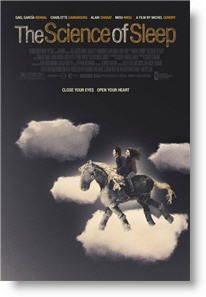
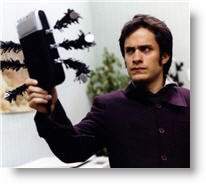
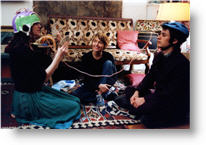
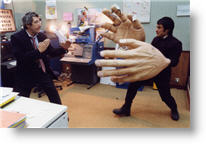
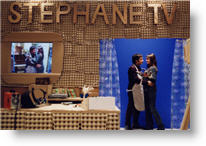
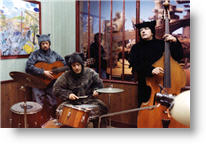
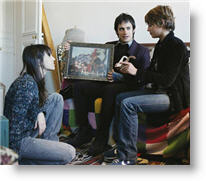
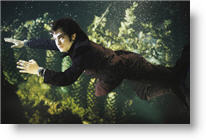
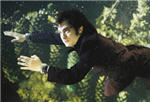
What is true love and how do you know when you have found it? Answer

Learn how to make your love the best it can be. Christian answers to questions about sex, marriage, sexual addictions, and more. Valuable resources for Christian couples, singles and pastors.
Are there biblical examples of depression and how to deal with it? Answer
| Featuring |
|---|
| Gael Garcia Bernal, Charlotte Gainsbourg, Alain Chabat, Jean-Michel Bernard, Emma De Caunes |
| Director |
|
Michel Gondry |
| Producer |
| Georges Bermann, Frederic Junqua |
| Distributor |
“Close your eyes. Open your heart.”
Here’s what the distributor says about their film: “In director Michel Gondry’s, ‘The Science of Sleep,’ life seems to be looking up for shy and withdrawn Stephane (Gael García Bernal) when he is coaxed to return to his childhood home with the promise of a job… in the mundane world of copy setting. Wildly creative, his fanciful and sometimes disturbing dream life constantly threatens to usurp his waking world. Stephane is quickly drawn to his neighbor, Stephanie (Charlotte Gainsbourg) whose imagination easily matches his own. As their relationship blossoms, the confidence Stephane exudes in his dreams begins bleeding over into his real life.
Unable to bear the prospect of a waking world without Stephanie’s love, and with no satisfying solutions coming out of his dream world, Stephane faces a dilemma he may not be able to depend on the science of sleep to help him solve.”
“The Science of Sleep” is an odd sort of movie—an interactive one, really. It requires its audience to have imagination, patience and the giving of their undivided attention. From the director of “Eternal Sunshine of the Spotless Mind,” this film follows a similar approach, with stunning visuals, which sometimes border on the edge of inconceivable.
The main character is an appealingly, average guy named Stephane. We first meet him through a dream, in which he is telling us what exactly his (and our) dreams are made of. He plays it out like a recipe, mixing events of the day with memories and emotion. As he narrates this process, his recipe takes him to a dream about his father. It is here we learn that his father has just died of cancer.
As we get to know Stephane in the realm of reality, we learn that he has just moved to France because his mother manipulated him to come back, as he had fled to Mexico to be with his father some time before. From the beginning, Stephane has serious issues with his mother. He resents her current romantic relationship, and even how she neglects and manipulates him. He misses his father terribly and frequently refers to him, both in dream and out.
Through a near tragic incident with a piano and a staircase, Stephane meets his new neighbor Stephanie, with whom he shares an instant connection. This film, more than anything, is some type of a strange love story. Stephane seems to fall instantly for his neighbor, fixating on making her world one laced with imagination and magic.
A large part of the movie is Stephane’s life from the perspective of his dreams. There are times when it is hard to tell whether it is reality or a strange dream sequence occurring on the screen, and quite often Stephane can’t seem to decipher the two either. Although he is always an endearing character, there are times when the audience wonders if he isn’t a bit crazy. Some moments he awakens from a dream to find that he carried out the actions of the dream, in real life—suggesting he does much more than sleep walk. There are times when Stephane is in “real-life,” and bizarre things seem to occur which leads one to speculate whether the movie is trying to be eccentric, or if we are simply seeing things through Stephane’s confused eyes.
Stephane seems to sabotage his own life, blaming Stephanie for actions the Stephanie of his dreams made, and confusing the issues he has with his mother for problems he has with Stephanie. Sometimes it’s frustrating to watch this, while most of the time it’s just sad. It reminds me, honestly, of an intimate look into the life and mind of someone who struggles with a mental illness. I am not sure if that’s the angle the screenwriter was going for though.
The character of Stephane is abundantly creative, and my husband made the observation that often times the really brilliant ones are the ones who tend to go mad. Maybe the story was trying to make that point in a less predictable way; it’s hard to tell. Sometimes Stephane seems incredibly imaginative and engineering, but once his out-of-dream insecurities creep in, he simply seems dark, lost and lonely.
Positives
- The character of Stephanie is one of patience and uncondition, while she deals with Stephane. It isn’t often that we see a character like this in our entertainment.
- The dream sequences are fun to watch; the imagination behind the film is inspiring, and every minute is vibrant and entertaining.
- The characters are beautifully portrayed, adding bits of reality to this surreal web of artistry.
Negatives
- In Stephane’s dream sequences, there are two simulations of sexual movement, though not sex itself, more like mocking the act.
- Throughout the second half of the film, profanity grows heavier with quite a few uses of the f-word, both in subtitles and spoken in English.
- There is a bathtub dream sequence with a near-naked female co-worker and a scene where we see Stephane nude very briefly.
- Stephane has a friend/co-worker who is fairly crude, and most scenes with him tend to have crude sexual remarks.
- “The Science of Sleep” is a film for thinkers and dreamers. Although I found its offenses, besides the profanity, to be pretty minor for a foreign film, this isn’t a movie for just anyone. It frequently moves between English and French dialect, with occasional Spanish thrown in, so subtitles tend to come and go randomly. It can be hard to follow, as it moves constantly between Stephane’s dream state and his reality, often focusing on his perspective and confusing the two.
Bottom line: I truly liked this movie! It’s fresh and energetic, breathing a bit of life into those plastic theater seats. It’s a great film for the artsy viewer, and even better for those who like to talk about the movies they have seen. If you liked “Eternal Sunshine…,” you will most likely enjoy this film as well, even though the plotlines are vastly different. If artsy movies aren’t your style, you likely won’t find much value here.
Violence: None / Profanity: Heavy / Sex/Nudity: Moderate
See list of Relevant Issues—questions-and-answers.


PLEASE share your observations and insights to be posted here.
